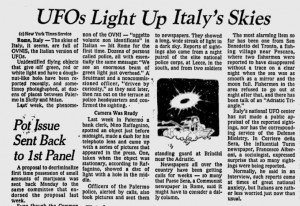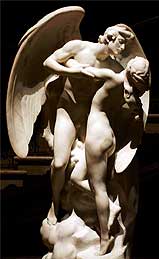 Internet hatchet-woman Gaylene Goodroad is at it again… criticizing books she hasn’t read that is. With only an undergraduate degree in communications she lacks basic theological/academic training and it shows in her “research.” But it’s worse than that. In a word, it is dishonest and a seminary or University would discipline or expel a student for such shoddy work. Rather than offer a meaningful critique from the primary sources, she liberally quotes the reviews of other pseudo-discernment writers like herself and affirms them without vetting any of their (often false) accusations. Furthermore, when she attempts to interact she misunderstands and/or misrepresents the material so badly it’s hard to believe she read it. I don’t think she did.
Internet hatchet-woman Gaylene Goodroad is at it again… criticizing books she hasn’t read that is. With only an undergraduate degree in communications she lacks basic theological/academic training and it shows in her “research.” But it’s worse than that. In a word, it is dishonest and a seminary or University would discipline or expel a student for such shoddy work. Rather than offer a meaningful critique from the primary sources, she liberally quotes the reviews of other pseudo-discernment writers like herself and affirms them without vetting any of their (often false) accusations. Furthermore, when she attempts to interact she misunderstands and/or misrepresents the material so badly it’s hard to believe she read it. I don’t think she did.
Case in point, Goodroad cites my book Exo-vaticana, “Whatever the case may be, readers will come to understand the book cover for Exo-Vaticana is not simply the product of someone’s fanciful imagination.”[1] But then she completely misrepresents it by writing, “No, the book cover for Exo-Vaticana was not the ‘simply the product of someone’s fanciful imagination,’ but was admittedly inspired by an ancient occult scroll!”[2] The scroll in question is not occult and it has nothing to do with the book cover.
Anyone who has actually read the book (or bothered to take five minutes to read the context) would know better. The discussion of the apocalypse scroll (discussed by Michael Heiser in The Façade and DSS scholar Stephen Pfann) depicts flying objects over Jerusalem not Vatican City! Thus, Goodroad cannot have read the material she claims to critique. That is not scholarship but borders on libel. Even more revealing of Goodroad’s sloppy misrepresentation is the actual context of the quote-mine. Here is the sentence in context:
Whatever the case may be, readers will come to understand the book cover for Exo-Vaticana is not simply the product of someone’s fanciful imagination. According to reliable witnesses and photographic evidence, something like what we have pictured has occurred more than once.[3]
As evidence I provided several photographs and this clipping from the New York Times News Service that describes an event very much like the book cover.
Obviously Goodroad did not bother to actually read the book she critiqued, but simply quote mined other websites who did not accurately represent the material either. It’s text-gossip. It is completely dishonest to critique a book you have not read. In seminary or University it would result in charges of academic dishonesty. She lacks the basic integrity required to fairly review books and media. Accordingly, a point by point response to the rest of her fallacious diatribe is unnecessary because an intellectually honest reader can see that she is discredited. As to her label, “Postmodern Prophecy Paradigm”(PPP), it reveals similar ineptitude. While she probably impressed herself by coming up with an alliteration using big words, no one who believes in biblical prophecy is postmodern because postmodernism’s central claim is there is no overarching universal meta-narrative, which is exactly what biblical prophecy entails. Goodroad operates from unfair assumptions, fails to read what she “reviews,” and blindly trusts similar so-called “discernment” websites as her primary sources. It is quite clear from her latest hit-piece, that Herescope has become nothing more than a cheesy internet gossip tabloid and cannot be taken seriously.
[1] Cris Putnam and Thomas R. Horn, Exovaticana: Petrus Romanus, Project L.u.c.i.f.e.r. and the Vatican’s Astonishing Plan for the Arrival of an Alien Savior (Crane, MO: Defender, 2013), xi
[2]Gaylene Goodroad, “Is Francis the Last Pope? http://herescope.blogspot.com/2014/06/is-francis-last-pope.html (accessed 6/6/14).








